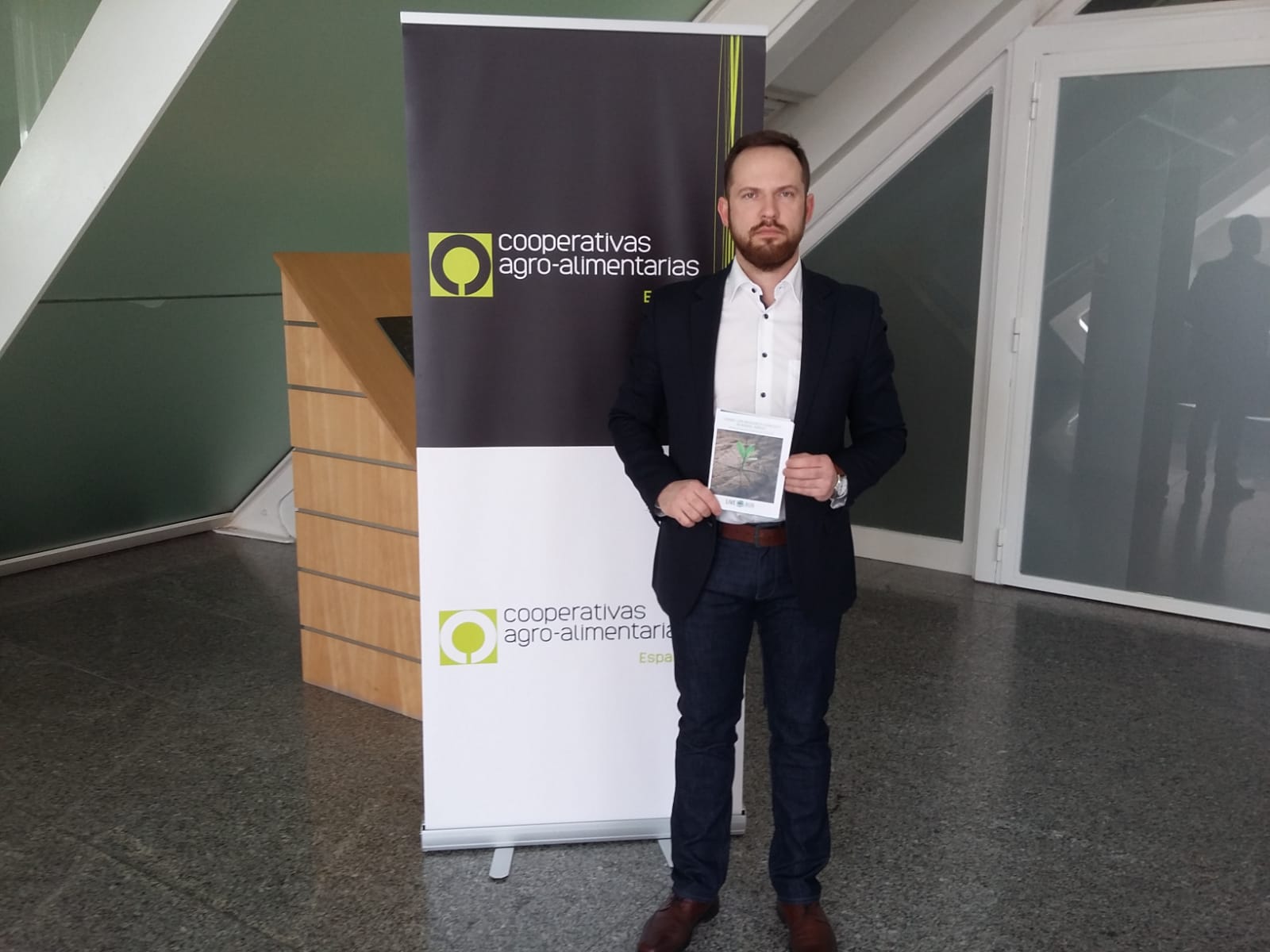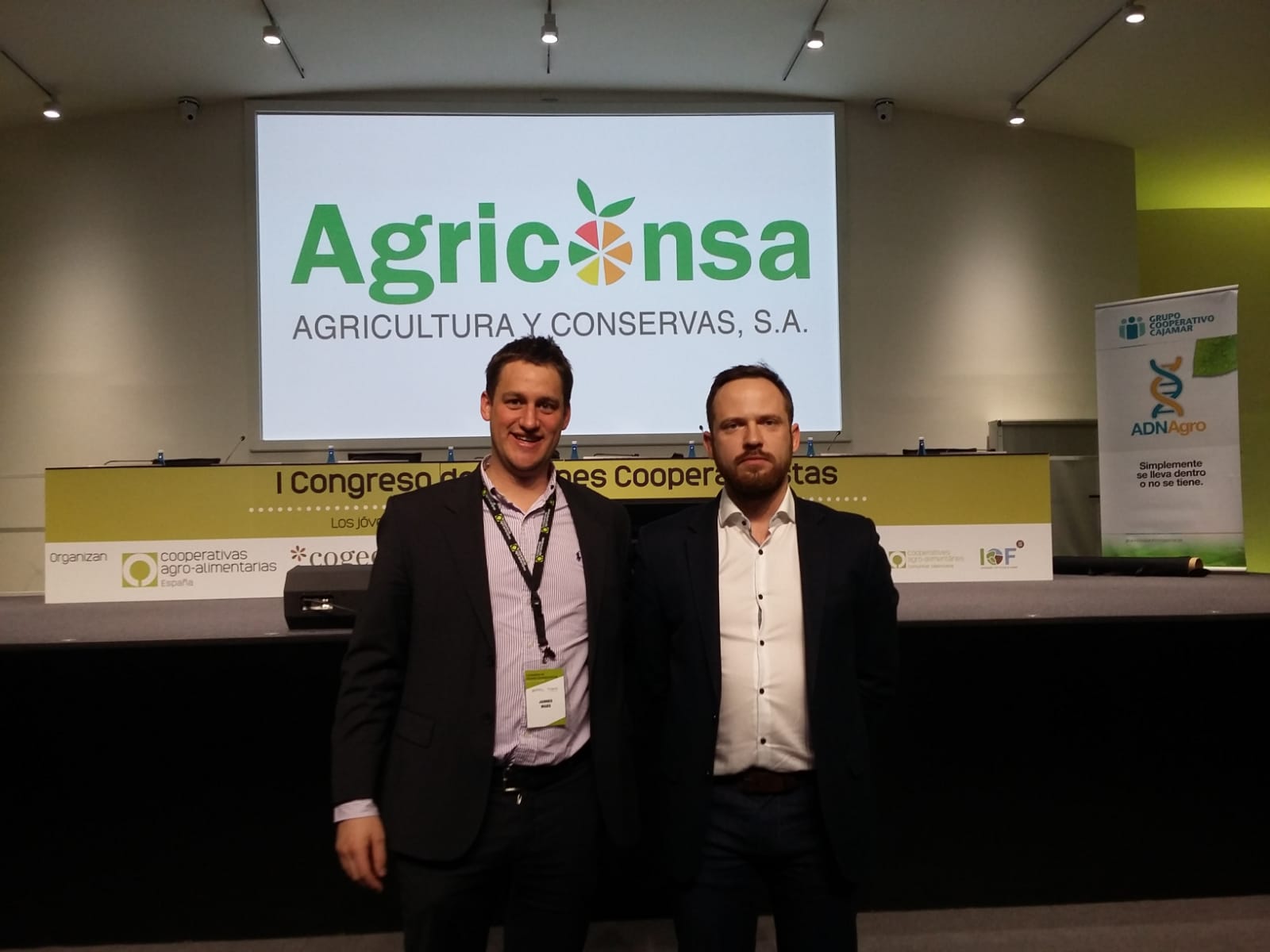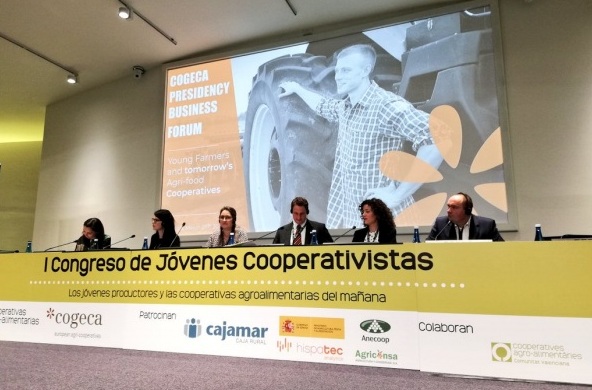Conference: Young Farmers and Agricultural Cooperatives
On March 21, 2019, Mārtiņš Trons, a member of the board of the association “Zemnieku saeima” and an agricultural policy expert, participated in the conference organized by COPA-COGECA in Valencia, Spain: “Young farmers and agricultural cooperatives of the future”.
Unlike Latvia, in the rest of Europe today there is no longer a current discussion about whether cooperation is necessary and what it can bring to farmers. On the one hand, farmers in "old" Europe can be understood, cooperation there already has a 200-year history, in contrast to the history of cooperation in Latvia, which is only about 20 years old.
The conference was attended by almost 300 participants – mostly young farmers from 24 European Union Member States. And as COGECA President Thomas Magnusson acknowledged in person, it is precisely young farmers, men and women, who are the lifeblood of the agricultural cooperatives of the future. Agricultural cooperatives need young farmers and young farmers need cooperatives. This is an ideal opportunity to jointly build, model a sustainable agricultural cooperative sector of the future.
Some other speakers at the conference acknowledged that young farmers are a minority in cooperative management and that the right moment must be found to involve young people in cooperative management, either before they have a family or when the children are old enough and their individual concerns have been eliminated. Representatives of French cooperatives also stressed that women should also be in cooperative management, to which the head of the Irish Cooperatives Association satirically replied that if only young farmers and women are in cooperative management now, then who will work in cooperative management at all?
The issue of young farmers in Spain is very important, because there are only 3.71% of farmers in Spain under the age of 40, while the average in the EU is 5.91%. 751% of Spanish farmers are men, although this figure is trending in the opposite direction.
As in Latvia and in many other countries, one of the problems of living in rural areas was the availability of infrastructure, as doctors, schools, kindergartens, and high-quality internet are not available everywhere nearby.
The issue of land was also raised as one of the problems of the conference, as 641% of the EU farmers surveyed admitted that one of the biggest problems of farming is the lack of land. Similarly, in a country like France, a young farmer has to prove himself in this sector and only then is there an opportunity to purchase land.
During the conference, Mārtiņš Trons met with the European Young Farmers umbrella organization CEJA Young Farmers Jannes Maes and discussed the situation in Latvian agriculture (support mechanisms for young farmers, Latvia's competitiveness in the common EU market, the level of direct payments in the EU and future cooperation opportunities).
The head of the organization expressed the opinion in the discussions that the CAP needs a "restart" with young farmers in mind. Jannes Maes also pointed out that only 81% of the total benefit of the CAP is received by farmers under the age of 40, as one of the problems.
The head of the Young Farmers Organization promised to visit Latvia or Estonia this spring. We hope that the visit will include a trip to Latvia so that we can introduce both our organization and show how young farmers farm in Latvia!
After the trip, Mārtiņš Trons acknowledged that this type of exchange of experience is very valuable and useful. Every opinion and insight heard was written down so that later, when creating agricultural policy in Latvia and meeting with local young farmers, the insights and ideas can be used in everyday life!
The trip was funded under the EU's Horizon 2020 research and innovation programme, contract No. 773757.
PRes_Young farmers and agricultural cooperatives
Press_Young Farmers – Future for Agricultural Cooperatives
Mārtiņš Trons and Jannes Maes, head of the European Young Farmers' Organization




